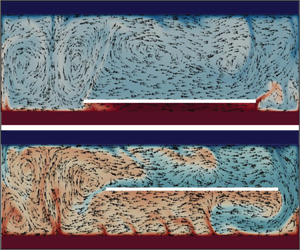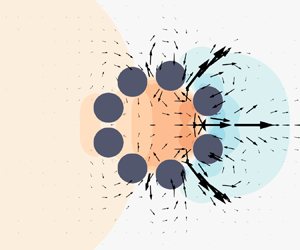Refine listing
Actions for selected content:
1418087 results in Open Access
The Resilience of Democracy’s Third Wave
-
- Journal:
- PS: Political Science & Politics / Volume 57 / Issue 2 / April 2024
- Published online by Cambridge University Press:
- 11 January 2024, pp. 198-201
- Print publication:
- April 2024
-
- Article
-
- You have access
- Open access
- HTML
- Export citation
Factors Associated with the Number of Injured and Fatalities in Motor Vehicle Intentional Mass-Casualty Incidents: A Timely Aid for Scaling the Emergency Response
-
- Journal:
- Prehospital and Disaster Medicine / Volume 39 / Issue 1 / February 2024
- Published online by Cambridge University Press:
- 11 January 2024, pp. 65-72
- Print publication:
- February 2024
-
- Article
-
- You have access
- Open access
- HTML
- Export citation
Numerical investigation of mixed-phase turbulence induced by a plunging jet
-
- Journal:
- Journal of Fluid Mechanics / Volume 979 / 25 January 2024
- Published online by Cambridge University Press:
- 11 January 2024, A27
-
- Article
- Export citation
“And I Believe in Signs”: Soviet Secularity and Islamic Tradition in Kyrgyzstan
-
- Journal:
- Comparative Studies in Society and History / Volume 66 / Issue 2 / April 2024
- Published online by Cambridge University Press:
- 11 January 2024, pp. 342-368
-
- Article
-
- You have access
- Open access
- HTML
- Export citation
Dangerous Instrument: Political Polarization and US Civil-Military Relations. By Michael A. Robinson. New York: Oxford University Press, 2022. 312p. $110.00 cloth, $29.95 paper.
-
- Journal:
- Perspectives on Politics / Volume 22 / Issue 3 / September 2024
- Published online by Cambridge University Press:
- 11 January 2024, pp. 925-927
- Print publication:
- September 2024
-
- Article
- Export citation
Conceptual and Measurement Issues in Assessing Democratic Backsliding
-
- Journal:
- PS: Political Science & Politics / Volume 57 / Issue 2 / April 2024
- Published online by Cambridge University Press:
- 11 January 2024, pp. 162-177
- Print publication:
- April 2024
-
- Article
-
- You have access
- Open access
- HTML
- Export citation
A Country of White Lilies: Inter-Imperial Nation-Making and Development from the Russian Empire’s Periphery to Post-Ottoman Turkey
-
- Journal:
- Comparative Studies in Society and History / Volume 66 / Issue 2 / April 2024
- Published online by Cambridge University Press:
- 11 January 2024, pp. 417-442
-
- Article
-
- You have access
- Open access
- HTML
- Export citation
Hospital-acquired infections surveillance: The machine-learning algorithm mirrors National Healthcare Safety Network definitions
-
- Journal:
- Infection Control & Hospital Epidemiology / Volume 45 / Issue 5 / May 2024
- Published online by Cambridge University Press:
- 11 January 2024, pp. 604-608
- Print publication:
- May 2024
-
- Article
- Export citation
Black Millennials, Slipping Alliances, and the Democratic Party
-
- Journal:
- Journal of Race, Ethnicity and Politics / Volume 9 / Issue 2 / July 2024
- Published online by Cambridge University Press:
- 11 January 2024, pp. 211-234
-
- Article
-
- You have access
- Open access
- HTML
- Export citation
Dehn functions of mapping tori of right-angled Artin groups
- Part of
-
- Journal:
- Glasgow Mathematical Journal / Volume 66 / Issue 2 / May 2024
- Published online by Cambridge University Press:
- 11 January 2024, pp. 252-289
- Print publication:
- May 2024
-
- Article
- Export citation
The Suffering Subject: Colonial Flogging in Northern Nigeria and a Humanitarian Public, 1904–1933
-
- Journal:
- Comparative Studies in Society and History / Volume 66 / Issue 2 / April 2024
- Published online by Cambridge University Press:
- 11 January 2024, pp. 319-341
-
- Article
-
- You have access
- Open access
- HTML
- Export citation
Rayleigh–Bénard convection with an immersed floating body
-
- Journal:
- Journal of Fluid Mechanics / Volume 979 / 25 January 2024
- Published online by Cambridge University Press:
- 11 January 2024, A23
-
- Article
- Export citation
Monitoring and management of common property resources: empirical evidence from forest user groups in Ethiopia
-
- Journal:
- Environment and Development Economics / Volume 29 / Issue 2 / April 2024
- Published online by Cambridge University Press:
- 11 January 2024, pp. 154-177
-
- Article
-
- You have access
- Open access
- HTML
- Export citation
Measuring Backsliding with Observables: Observable-to-Subjective Score Mapping
-
- Journal:
- PS: Political Science & Politics / Volume 57 / Issue 2 / April 2024
- Published online by Cambridge University Press:
- 11 January 2024, pp. 216-223
- Print publication:
- April 2024
-
- Article
-
- You have access
- Open access
- HTML
- Export citation
The Creation of a Gendered Division of Labor in Mule Spinning: Evidence from Samuel Oldknow, 1788–1792
-
- Journal:
- Enterprise & Society / Volume 26 / Issue 1 / March 2025
- Published online by Cambridge University Press:
- 11 January 2024, pp. 144-169
- Print publication:
- March 2025
-
- Article
- Export citation
Chariots, mail coaches and wagons in the Arabic dialect of Qaṭrāyīth (“in Qatari”) in early Islamic eastern Arabia
-
- Journal:
- Bulletin of the School of Oriental and African Studies / Volume 87 / Issue 1 / February 2024
- Published online by Cambridge University Press:
- 11 January 2024, pp. 87-96
- Print publication:
- February 2024
-
- Article
-
- You have access
- Open access
- HTML
- Export citation
Commutants and complex symmetry of finite Blaschke product multiplication operator in
 $L^2(\mathbb{T})$
$L^2(\mathbb{T})$
- Part of
-
- Journal:
- Proceedings of the Edinburgh Mathematical Society / Volume 67 / Issue 1 / February 2024
- Published online by Cambridge University Press:
- 11 January 2024, pp. 261-286
-
- Article
- Export citation
Coordinated suction and blowing of a cylinder array for thrust generation
-
- Journal:
- Journal of Fluid Mechanics / Volume 979 / 25 January 2024
- Published online by Cambridge University Press:
- 11 January 2024, A26
-
- Article
-
- You have access
- Open access
- HTML
- Export citation
Time-delayed characteristics of turbulence in pulsatile pipe flow
-
- Journal:
- Journal of Fluid Mechanics / Volume 979 / 25 January 2024
- Published online by Cambridge University Press:
- 11 January 2024, A24
-
- Article
- Export citation
BJN volume 131 issue 3 Cover and Front matter
-
- Journal:
- British Journal of Nutrition / Volume 131 / Issue 3 / 14 February 2024
- Published online by Cambridge University Press:
- 11 January 2024, pp. f1-f2
- Print publication:
- 14 February 2024
-
- Article
-
- You have access
- Export citation























